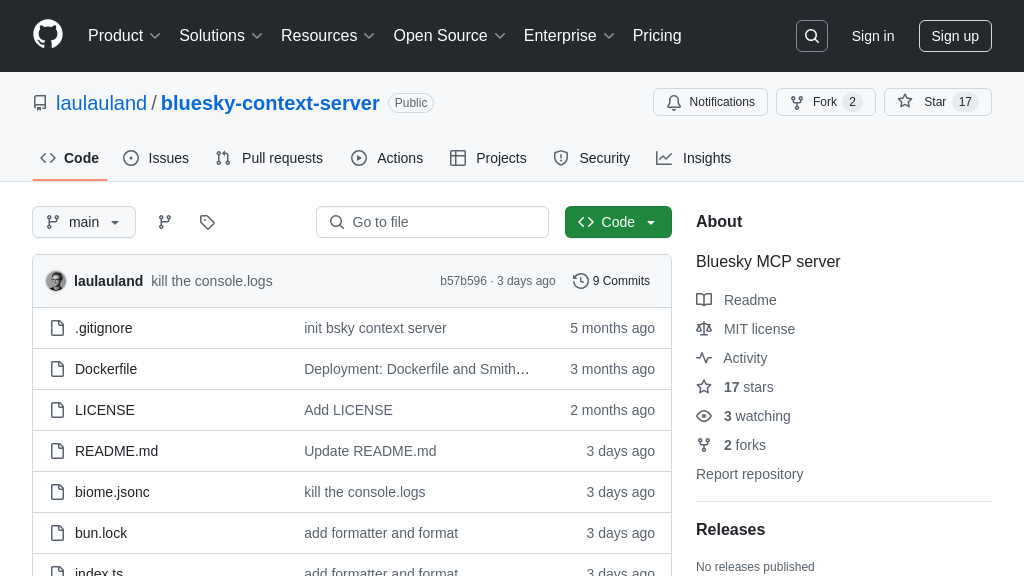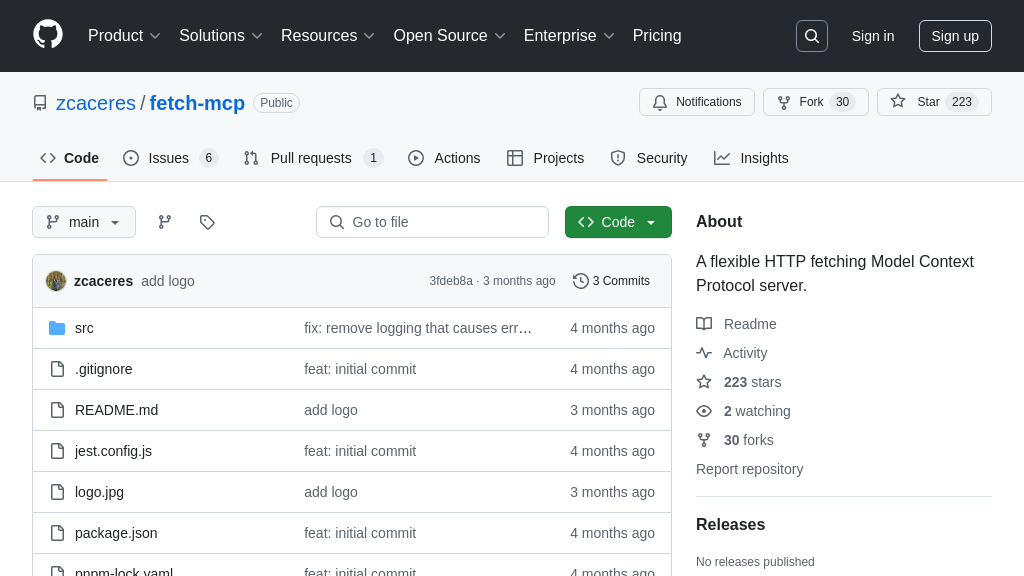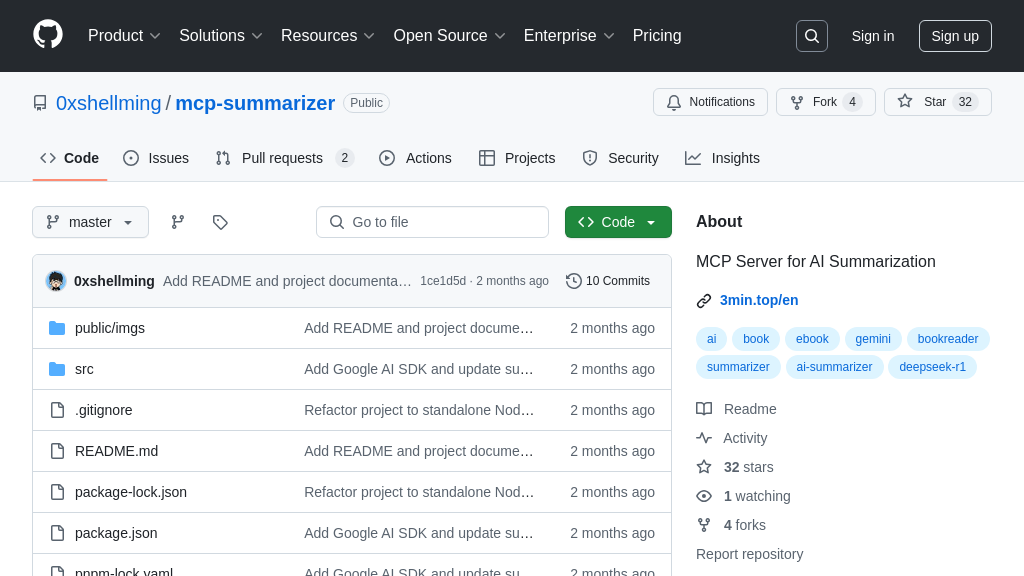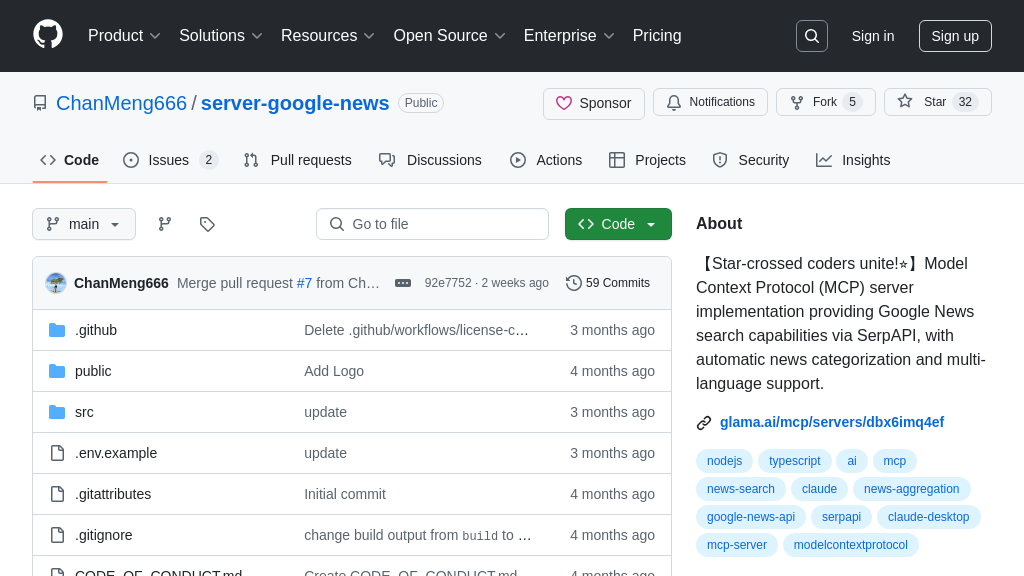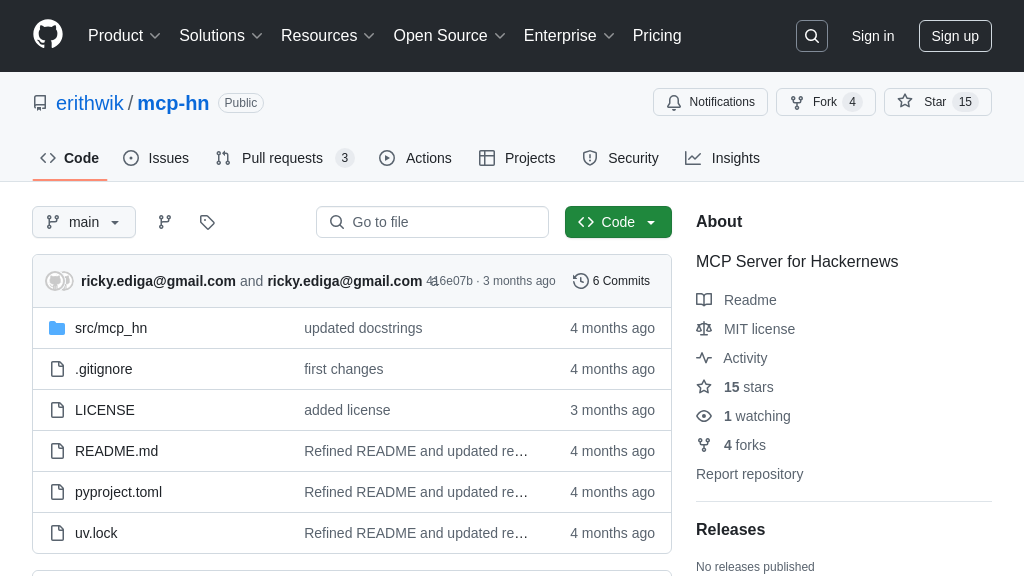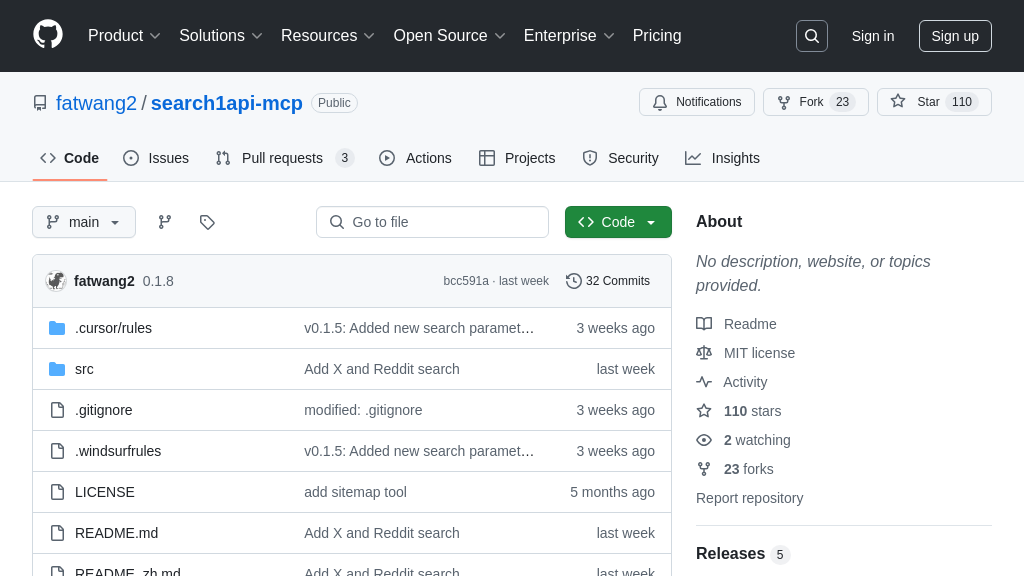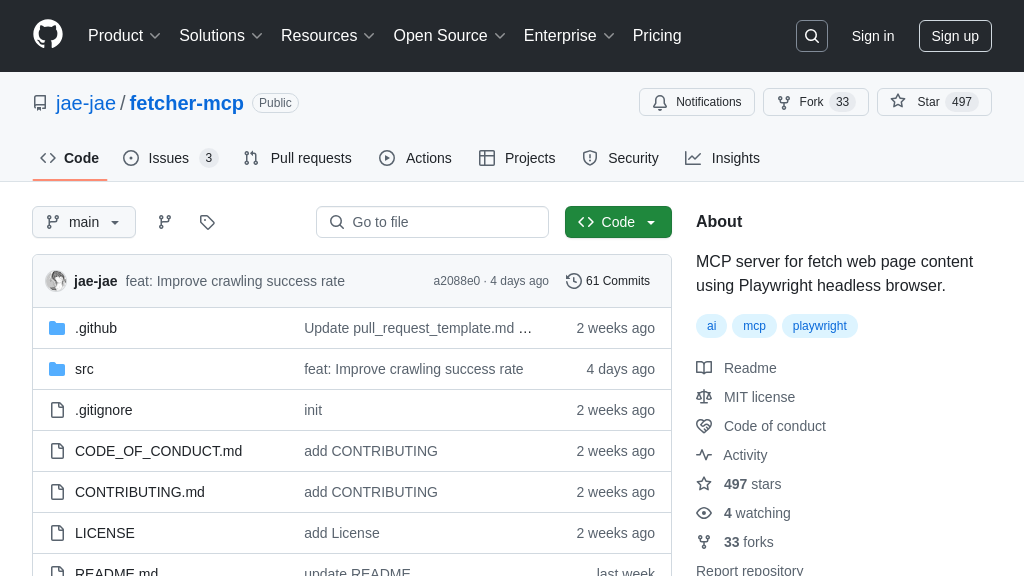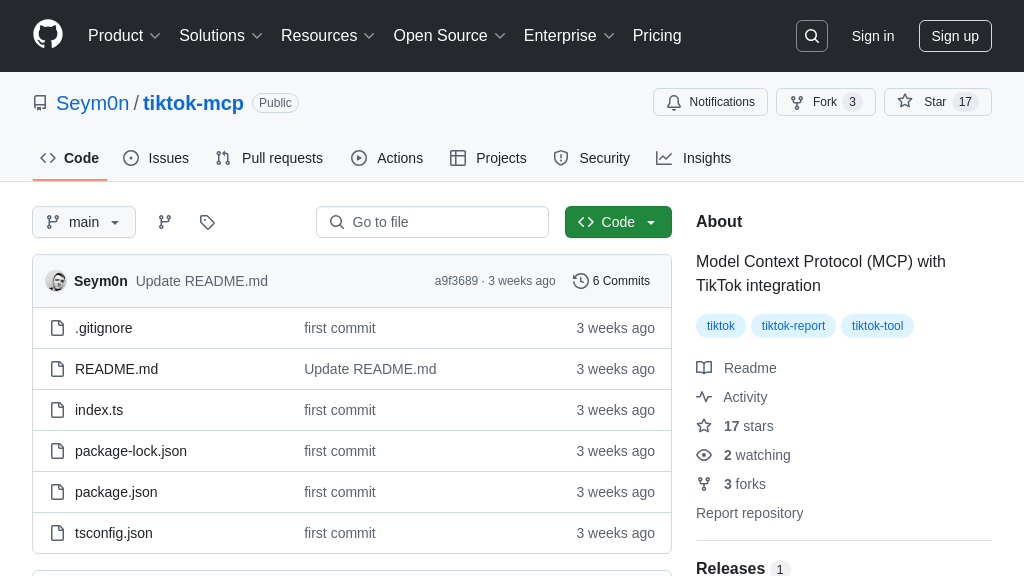unichat-mcp-server
Unichat MCP Server: Unified interface for multiple AI models via MCP. Simplify integration with OpenAI, MistralAI, and more.
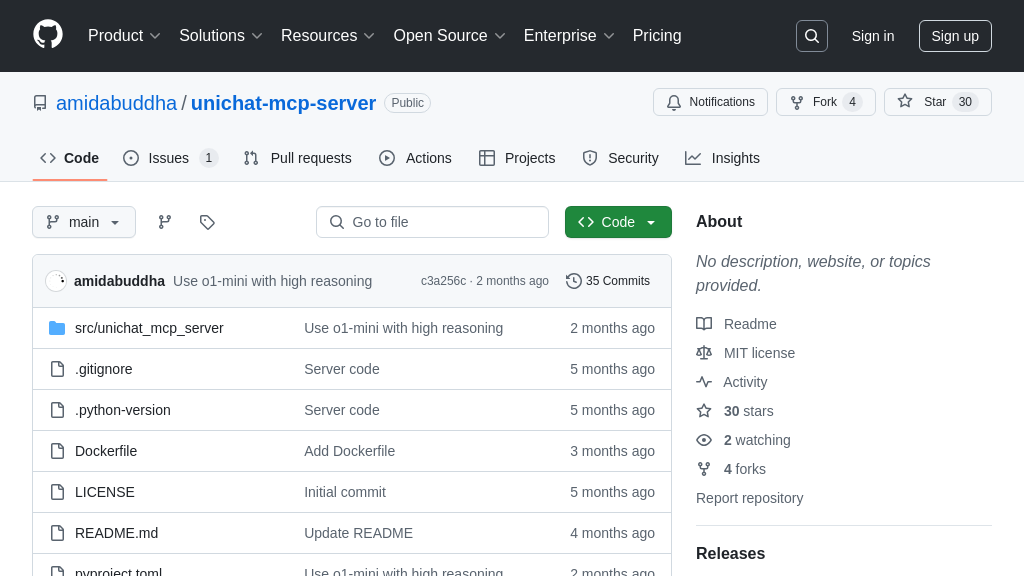
unichat-mcp-server Solution Overview
Unichat MCP Server is a versatile server designed to interact with multiple AI model providers like OpenAI, MistralAI, and Google AI through the MCP protocol. It simplifies integration with diverse AI model APIs, offering a consistent interface for developers.
This server provides tools, such as the unichat tool for sending requests, and pre-defined prompts like code_review, document_code, explain_code, and code_rework to enhance AI model functionality. These tools enable AI models to perform specific tasks like code analysis and documentation.
Unichat MCP Server seamlessly integrates with AI models by receiving requests via the MCP protocol and returning the AI model's response. Its core value lies in abstracting away the complexities of interacting with different AI APIs, allowing developers to focus on building AI-powered applications. It can be installed via Smithery and debugged using the MCP Inspector.
unichat-mcp-server Key Capabilities
Unified AI Model Integration
Unichat MCP Server streamlines the integration process with multiple AI model providers, including OpenAI, MistralAI, Anthropic, xAI, Google AI, and DeepSeek. It acts as a unified interface, abstracting away the complexities of individual API implementations. This allows developers to interact with different AI models using a consistent protocol, reducing the need to write and maintain separate integration logic for each provider. The server handles the underlying communication, authentication, and data formatting required by each AI model API.
For example, a developer can use Unichat to switch between different language models (e.g., GPT-4 and Claude) without modifying their application code. They simply need to configure the server with the appropriate API keys and model selection. This simplifies experimentation and allows for dynamic selection of the best model for a given task. The server is implemented in Python, leveraging standard libraries for HTTP communication and data serialization.
Code-Focused Predefined Prompts
Unichat MCP Server offers a set of predefined prompts specifically designed for code-related tasks, such as code review, documentation generation, code explanation, and code rework. These prompts provide a convenient way to leverage the power of AI models for common software development activities. By encapsulating these tasks into reusable prompts, Unichat reduces the need for developers to manually craft complex prompts for each task. The server handles the prompt formatting and execution, returning the results in a structured format.
For instance, a developer can use the code_review prompt to automatically identify potential issues and best practices in their code. They simply provide the code as input, and the server returns a detailed analysis generated by the AI model. This can significantly speed up the code review process and improve code quality. These prompts are implemented using Python's string formatting capabilities, allowing for dynamic insertion of code snippets and other relevant information into the prompt.
Simplified Claude Desktop Integration
Unichat MCP Server simplifies the integration of AI models with Claude Desktop, a popular AI assistant application. It provides a straightforward configuration process, allowing users to easily connect Unichat to Claude Desktop and leverage its AI capabilities within the application. The server includes detailed instructions on how to configure Claude Desktop to use Unichat as an MCP server, including the location of the configuration file and the required environment variables.
For example, a user can configure Claude Desktop to use Unichat with a specific AI model (e.g., GPT-4o-mini) by setting the UNICHAT_MODEL and UNICHAT_API_KEY environment variables in the Claude Desktop configuration file. This allows them to access the capabilities of that AI model directly within Claude Desktop, enhancing its functionality and providing a more powerful AI assistant experience. The integration leverages Claude Desktop's support for MCP servers, allowing Unichat to seamlessly communicate with the application.
Technical Implementation: UV Dependency Management
Unichat MCP Server utilizes UV for dependency management, ensuring consistent and reproducible builds. UV streamlines the process of synchronizing dependencies, updating the lockfile, and building the package distribution. This simplifies the development workflow and reduces the risk of dependency-related issues. By using UV, Unichat ensures that all required dependencies are correctly installed and managed, leading to a more stable and reliable server.
For example, developers can use the uv sync command to synchronize dependencies and update the lockfile, ensuring that all dependencies are up-to-date and compatible. The uv build command can then be used to build the package distribution, creating source and wheel distributions in the dist/ directory. This simplifies the process of preparing the server for distribution and deployment.
Integration Advantage: MCP Inspector Debugging
Unichat MCP Server benefits from the MCP Inspector, a powerful debugging tool that simplifies the process of troubleshooting MCP server interactions. Since MCP servers operate through stdio, traditional debugging methods can be challenging. The MCP Inspector provides a user-friendly interface for inspecting requests and responses, setting breakpoints, and stepping through code execution. This significantly improves the debugging experience and allows developers to quickly identify and resolve issues.
For instance, developers can launch the MCP Inspector using the command npx @modelcontextprotocol/inspector uv --directory {{your source code local directory}}/unichat-mcp-server run unichat-mcp-server. This will start the Inspector and display a URL that can be accessed in a browser. The Inspector will then display detailed information about the communication between the client and the server, allowing developers to easily debug their code.
